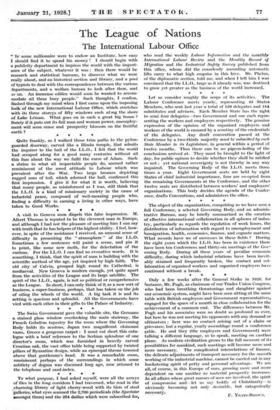Only a few weeks after the General Strike in 1926,
for instance, Mr. Pugh, as chairman of our Trades Union Congress, who had been breathing threatenings and slaughter against our economic system, might have been seen sitting at the same table with British employers and Government representatives, engaged for the space of a month in close collaboration for the achievement of a common end. The differences between Mr. Pugh and his associates were no doubt as profound as ever, but here he was not meeting his opponents with any demand or ultimatum ; here was no contact arising out of a claim or grievance, but a regular, yearly assemblage round a conference table. He and they (the employers and Government) were talking a different language, so to speak', meeting on another plane. As modem civilization grows to the full measure of its possibilities for mankind, such meetings will become more and more necessary. The complicated interrelations of finance, the delicate adjustments of transport necessary for the smooth working of the industrial machine, cannot be carried out in any huckstering spirit of petty and personal advantage. We are all, of course, in this Europe of ours, growing more and more dependent on one another as material prosperity increases. In all affairs where great masses of men are involved, the spirit of compromise and—let us say boldly of Christianity—is obviously becoming net only desirable, but categorically necessary..
F. YEATs-BnowNr, -






































 Previous page
Previous page